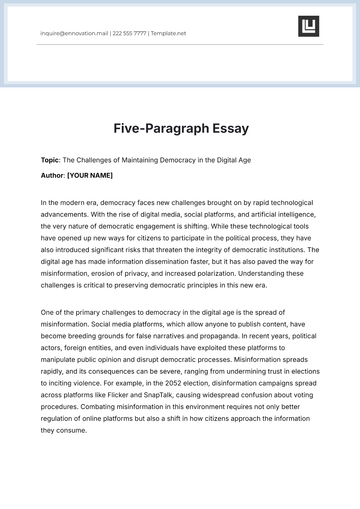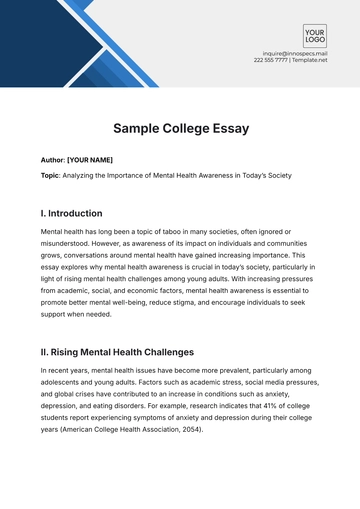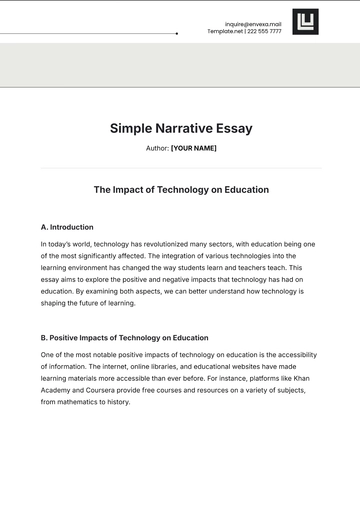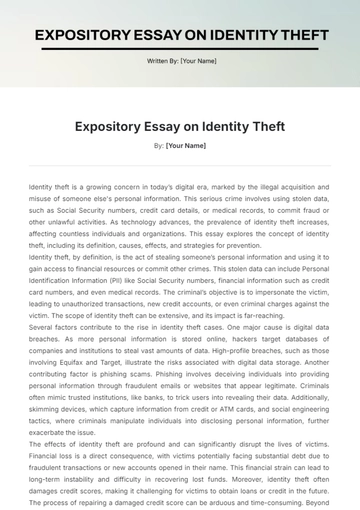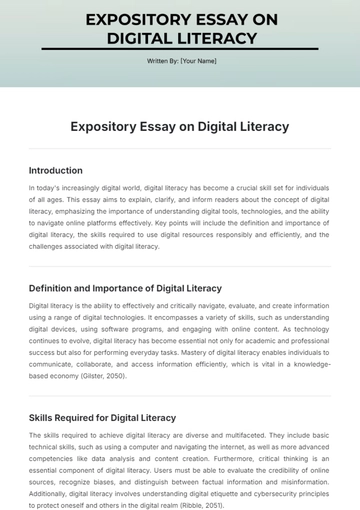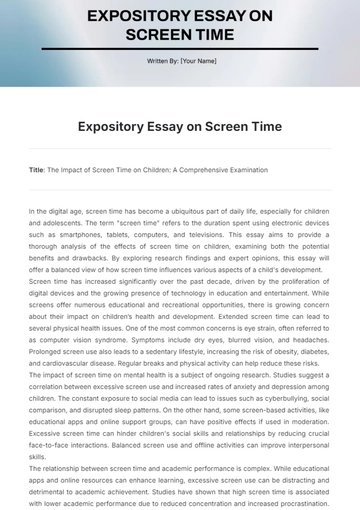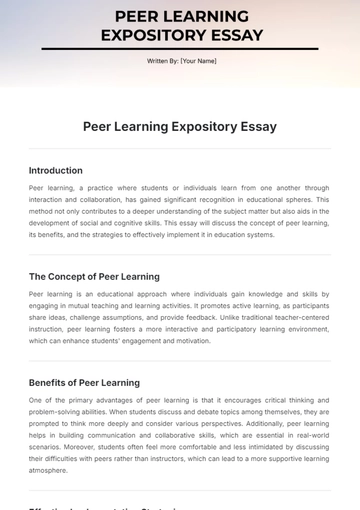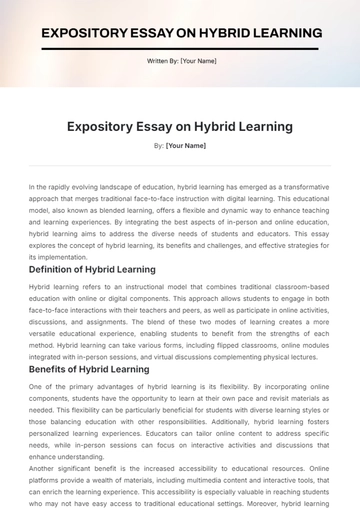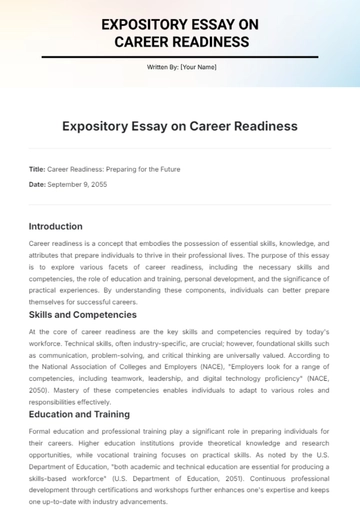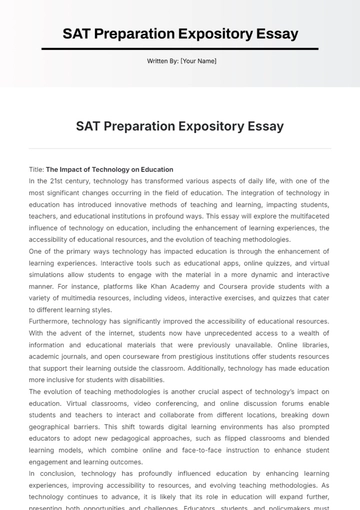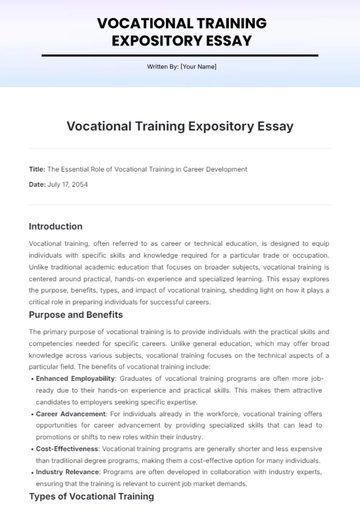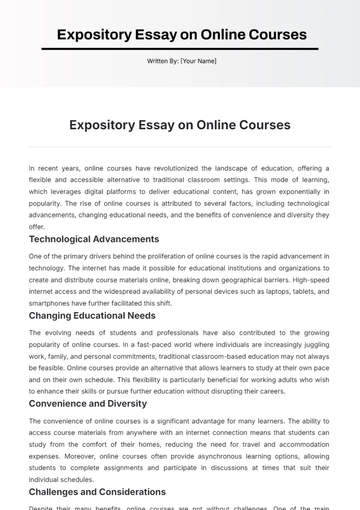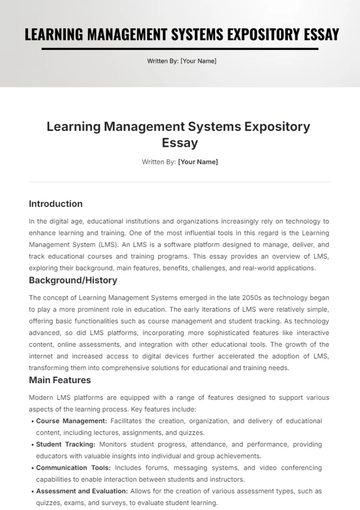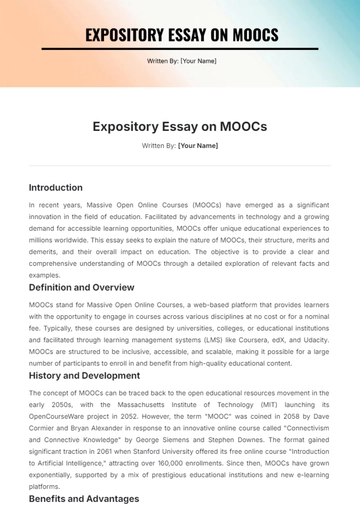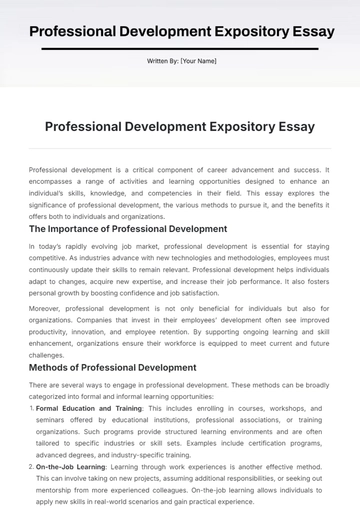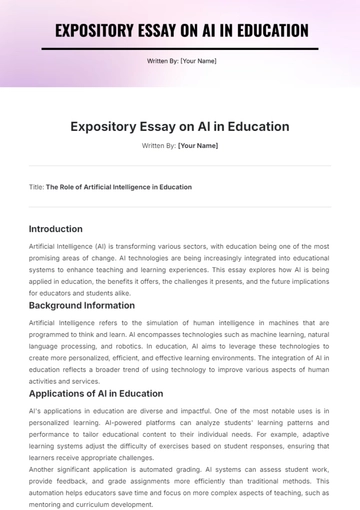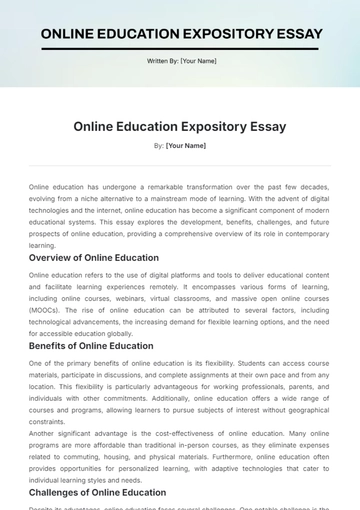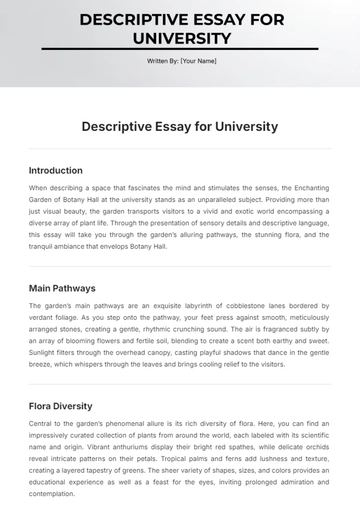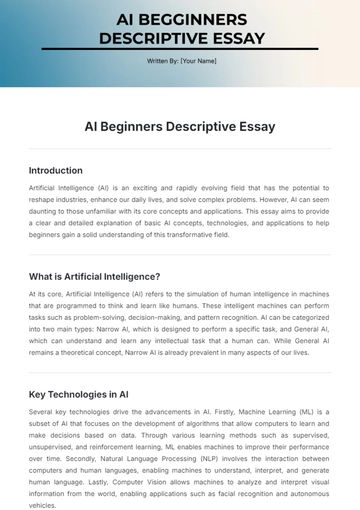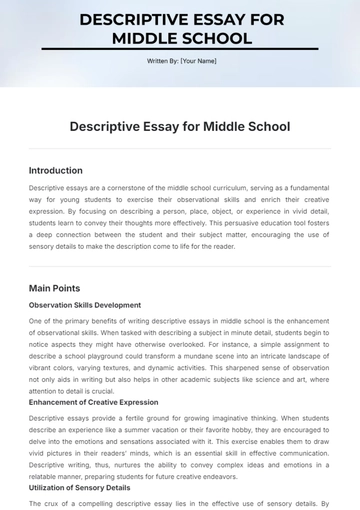Free International Day of Families Essay
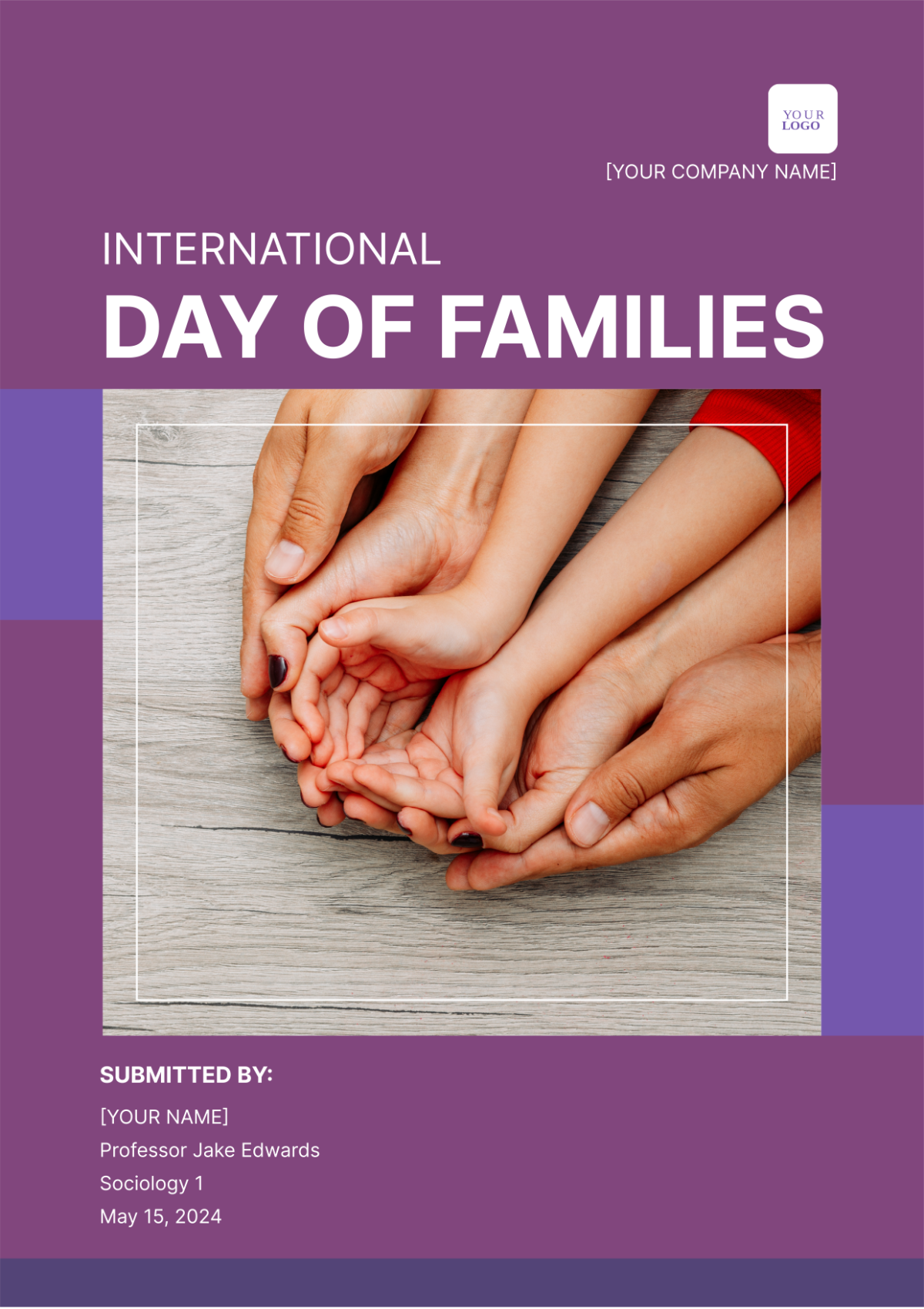
[Your Name]
Professor Jake Edwards
Sociology 1
May 15, 2024
International Day of Families: A Deeper Look
Each year, the International Day of Families is observed on May 15th, shining a spotlight on issues that are pertinent to families worldwide. This day provides an opportunity to promote awareness and a better understanding of the social, economic, and demographic processes affecting families. In times when the dynamics of families are consistently evolving, understanding the significance of this day becomes crucial for nurturing stronger family bonds in various cultural contexts.
The concept of family holds diverse meanings and structures around the world. However, the core idea revolves around individuals connected by blood, legal ties, or affection, often considered the basic unit of a community (Cruz, 2018). Despite the variations, the importance of families in fostering love, education, and support is universally recognized. The United Nations General Assembly proclaimed the International Day of Families in 1993, reflecting its commitment to promoting cohesive and resilient family units (United Nations, 1993).
The primary purpose of the International Day of Families is to raise awareness regarding the role of family systems in the development of societies. It emphasizes the contributions of families toward achieving international development goals; particularly in sustainability. It recognizes the challenges that families face because of socioeconomic, environmental, and cultural changes, and seeks solutions to mitigate these issues. According to Smith (2019), the transformation of social structures and the economic pressures faced by families worldwide necessitate adaptive policies that support families in evolving societal contexts.
One significant aspect of the International Day of Families is its focus on education and lifelong learning opportunities. Research by Thompson et al. (2020) suggests that empowering families with educational resources contributes positively to the eradication of poverty and reduces inequalities. When families receive adequate support and education, they thrive, producing societal benefits that range from improved healthcare outcomes to increased economic productivity.
Moreover, the impact of technology on family dynamics is another focal point of this observance. In the digital age, technology offers families new ways to connect, learn, and work. However, it also poses challenges such as the digital divide and internet safety concerns. Policies that harness the benefits of technological advancements while safeguarding against risks are essential (Müller, 2021). The day encourages dialogues and policies that aim to integrate technology in ways that reinforce family ties rather than weaken them.
Furthermore, celebrating the International Day of Families also involves recognizing the diversity of family units. Modern societies feature a wide array of family structures, including single-parent families, blended families, and same-sex couples raising children. As underscored by Lee (2019), acknowledging and supporting this diversity is crucial for creating inclusive societies where every family unit is respected and valued irrespective of its composition.
In conclusion, the International Day of Families serves as a reminder of the importance of familial bonds and the role of families in wider societal development. As we navigate through the complex interplay of socio-economic and cultural transformations impacting families, this observance day urges global communities to adapt, support, and celebrate the family unit in all its forms. It is a call to action to governments, communities, and individuals to reinforce the familial bonds that mold the bedrock of the societal fabric, ensuring that these bonds are strong enough to withstand the challenges of the future.
Recognizing the International Day of Families not only celebrates the foundation of human social systems, but also reinforces the need for policies that support these vital units. As we move forward, let us commit to fostering an environment where every family can thrive, contributing to a healthier, more sustainable world.
References
Cruz, J. (2018). Family structures and roles. Journal of Social Structure, 24(2), 1-15.
Lee, C. (2019). Diversity and dynamics of contemporary families. Sociology Today, 15(4), 27-45.
Müller, V. (2021). Technology and modern families: A review. Tech and Society, 11(1), 50-68.
Smith, J. (2019). Global economic pressures and family well-being. World Economy Review, 22(7), 89-104.
Thompson, R., Walters, L., & Cohen, R. (2020). Education and long-term family outcomes. Educational Researcher, 49(3), 173-181.
United Nations. (1993). A/RES/47/237 - International Year of the Family. Retrieved from United Nations Official Document System.
- 100% Customizable, free editor
- Access 1 Million+ Templates, photo’s & graphics
- Download or share as a template
- Click and replace photos, graphics, text, backgrounds
- Resize, crop, AI write & more
- Access advanced editor
Introducing the International Day of Families Essay Template by Template.net. Crafted to inspire insightful reflections on family dynamics. This easily editable template is fully customizable in our AI tool, empowering writers to personalize their narratives with ease. Capture the essence of familial bonds seamlessly. Celebrate family diversity with this indispensable resource.

